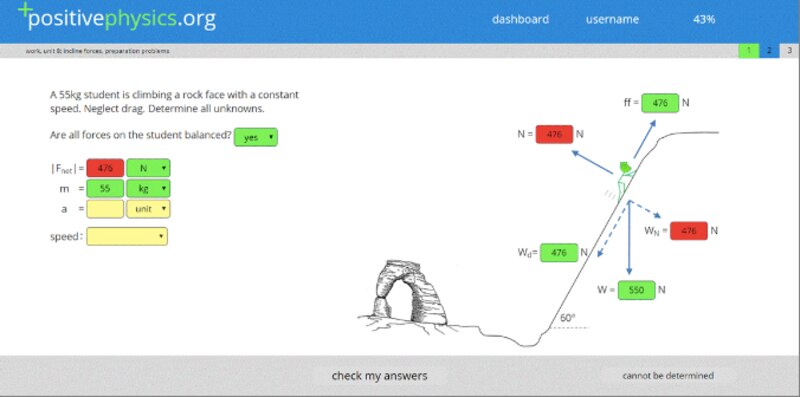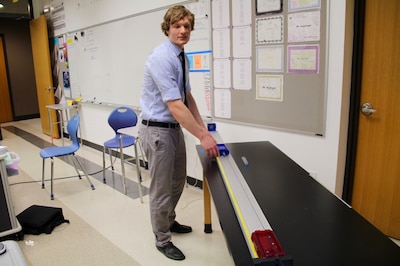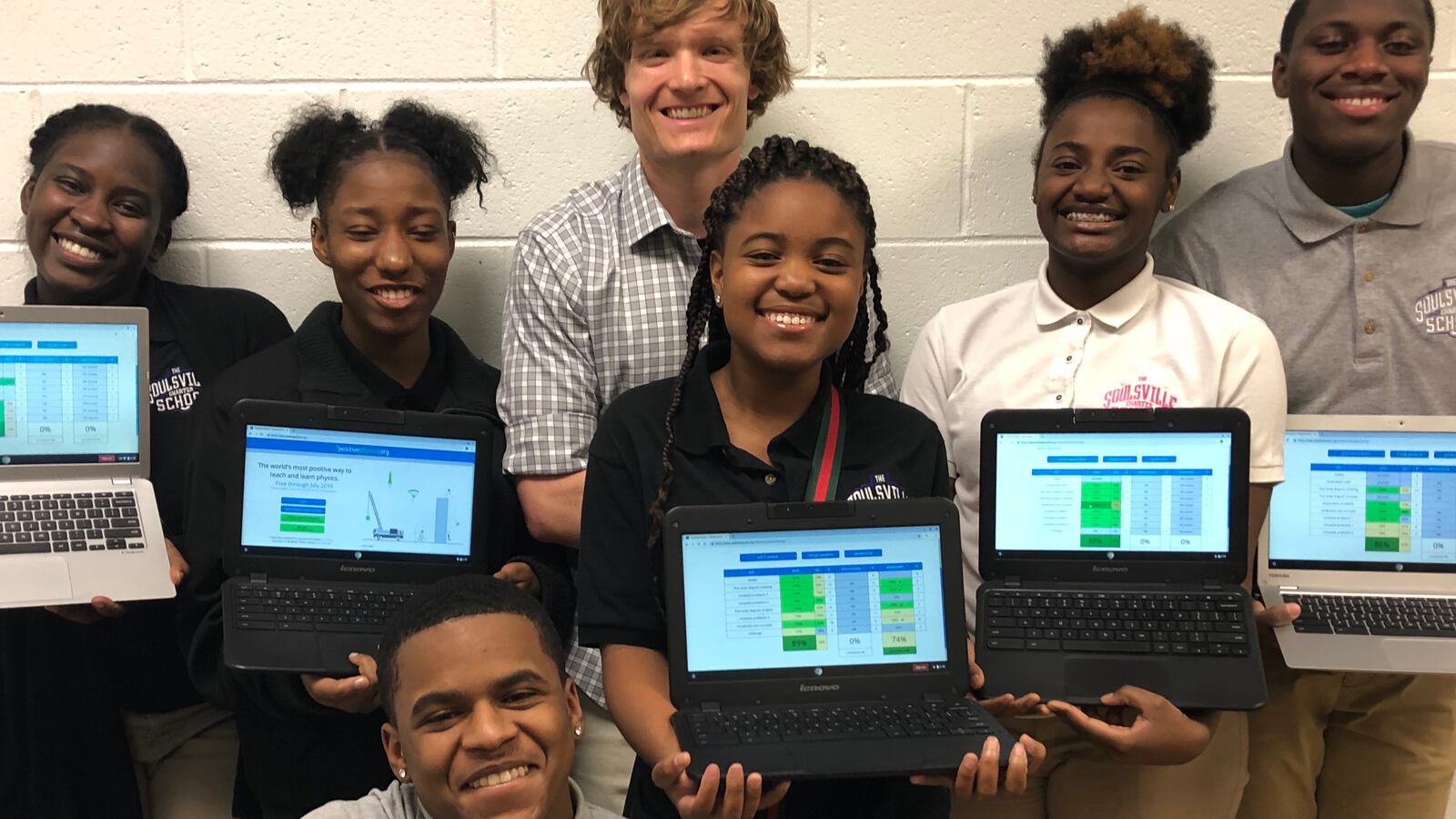Three girls explode into laughter and cheers as they roll a small cart across the table, successfully getting a rubber band to launch the cart just fast enough to knock a washer off the back of the cart, but not quite fast enough to knock over two washers.
These high schoolers might look like they are just playing with toys inside their Memphis classroom, but they are actually in the middle of a physics lesson. That’s by design.
In his 12 years as a teacher in Memphis, Jack Replinger has worked on perfecting physics lessons that are easy to break down, accessible to students who may not be on grade level in reading and math, and, above all, fun for his students at The Soulsville Charter School in south Memphis. But he’s got another huge aspiration as well: to bring his increasingly popular physics website to as many students and teachers as he can, and to as many countries.
“I was trying to teach the way I had been taught,” Replinger said of his first years in the classroom. “It was boring and a bit of a disaster. Over winter break my second year of teaching, I blew up everything I had learned and said, ‘OK, I’m going to slow this down and move away from teaching long equations.’ That’s when I really started to enjoy teaching.”
Replinger came up with the idea three years ago to take his lessons, which were handed out in his classrooms as thick, paper packets, and turn them into an interactive website, for his students. It’s called Positive Physics. Software engineer Anthony Fizer, who played pick-up basketball with Replinger, helped him get the site running in 2015 and continues to work on the site.

Now, more than 6,000 students in 585 schools across 49 states and in 40 countries have used the free website to learn physics. Replinger grew the site’s reach through his postings in teacher-focused Facebook groups and on other social networks.
“I originally wanted to make this because I wanted a website where my students would work that had interesting problems and also didn’t punish them if they are behind in grade level,” Replinger said. “But I think it’s clear it’s hit on a need for teachers elsewhere.”
The website thus far has been mostly self-funded, though he has solicited small donations from friends, family, and via PayPal, and has received some help from the Soulsville Foundation. Replinger said he is now working to find outside investors to keep the website going into the future.
Replinger came to Memphis in 2007 from Seatle as a Teach For America educator, and he was recently named as the winner of the Barbara Rosser Hyde Alumni Leadership Award, a $5,000 award recognizing leadership among the program’s alumni in Memphis.
When Replinger started teaching at Kingsbury High School as part of the teacher training program, he said he struggled to engage his first classes of physics students. He said so much of his first years of teaching was writing problems and grading, that he had little time to design labs such as the rubber band cart experiment. Part of his goal for the website was to prevent other early career educators from going through the same slog.
“For me, this is a chance to say to other teachers, ‘Let me write the problems for you so you can focus on labs,’ he said. “It takes the burden off newer teachers so they can focus on the fun and creative stuff.”
Anna Krueger, a teacher at Hamilton High School, said that the site has taken a “huge load off of my shoulders,” while also guarding against cheating since each student gets different numbers to work with on the same type of problems.
“I feel like this prevents cheating really well and simultaneously encourages teamwork,” Krueger said.

For Replinger, he said the most rewarding part of the site goes back to how it impacts his students. The high schoolers can pace themselves and try homework problems as many times as they like without punishment.
He said one student story stands out as an example of how the site can boost confidence among his high schoolers.
“I had a student last year who saw herself completely not as a math person,” he said. “But she spent a lot of time practicing on the site, and she would even start on homework problems before I had assigned them. She started the class by getting a D on the first quiz. She ended it by getting As at the honors level.”


